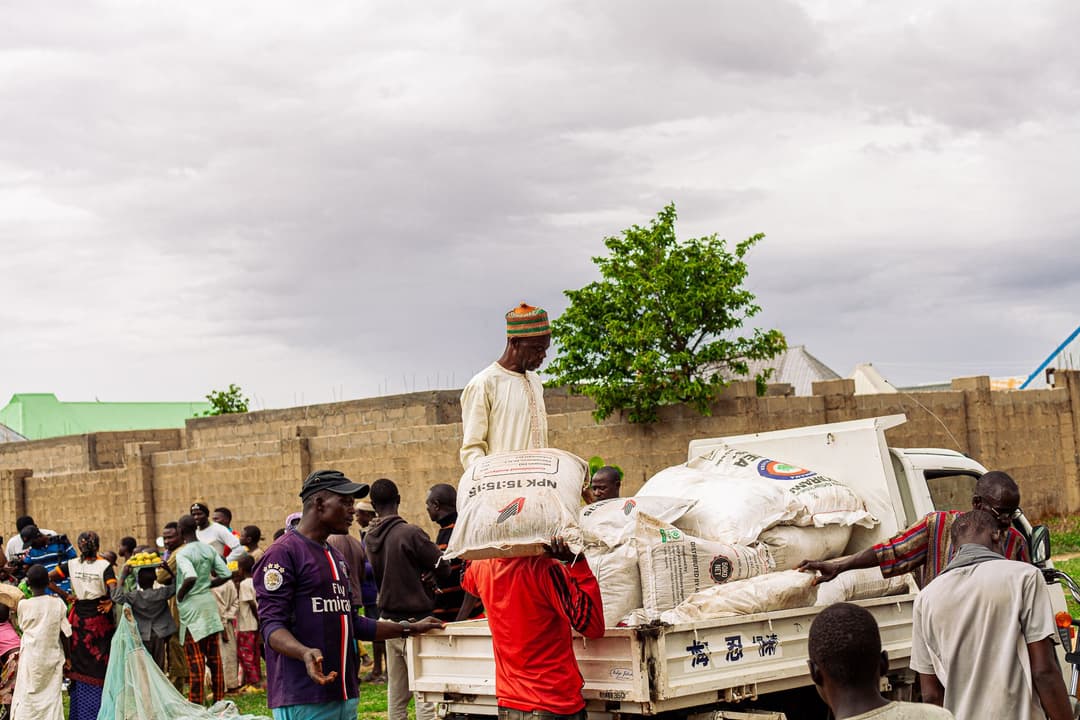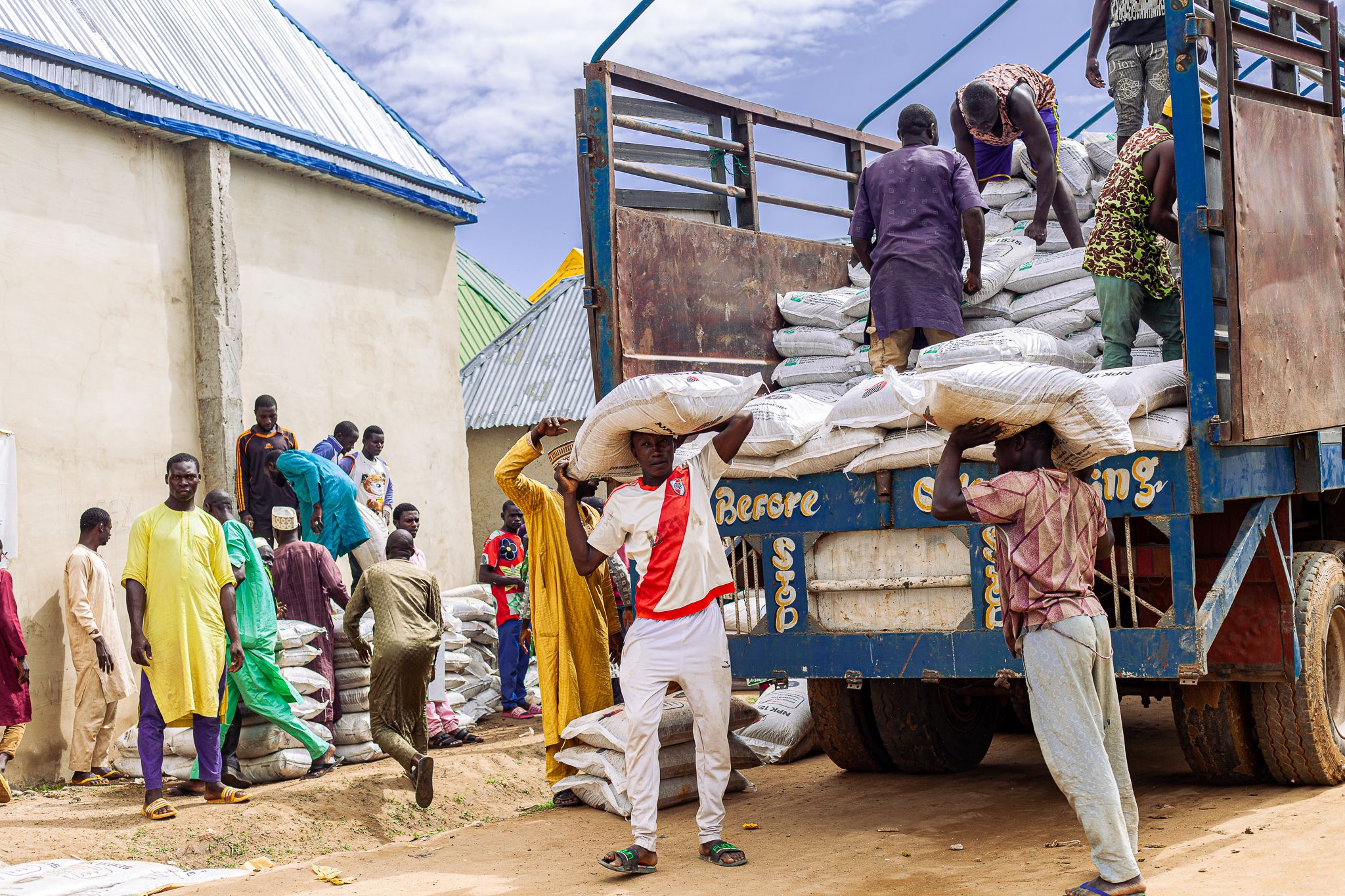Reading time:5 min read
Getting out of food scarcity in Nigeria
Food scarcity in Nigeria has year-on-year been a double-digit issue. About one in every 10 Nigerians experiences severe hunger. Between June and August 2024, according to this report by Cadre Harmonize about 31.5 million Nigerians will face severe food shortages and scarcity. The case is so dire that it resulted in the presidency declaring a state of emergency to tackle food insecurity in the country.
To defuse this time bomb, we need to address the core factors influencing the rise of food scarcity in Nigeria. Conflicts like armed banditry and kidnapping in key producing areas, poverty, climate change, inflation, and rising food prices are key drivers of this alarming trend.
Research by the FAO shows there has been a 45% decrease in the main source of income for nearly half of the households in Nigeria. Food availability is vulnerable to climate change and successively hit by environmental disasters and an economy in which 40.1% of its population lives below the poverty line, this shows that 4 in 10 Nigerians are acutely poor. Across the Nigerian food value chain, approximately 15 million metric tons of food are lost to post-harvest handling, market disruptions, and storage to distribution and consumption. In the first half of 2022, armed groups killed more than 128 farmers and kidnapped 37 others across Nigeria between January and June 2023, according to the Nigerian Security Tracker.
Evaluating Food Scarcity in Nigeria
Before the late 50s, food shortages and food scarcity in Nigeria were nonexistent. The food system operated sufficiently to feed citizens and also export the gluts of cash crops. The West was known for its abundance of cocoa farms, the North with its towering groundnut pyramid, the Mid-west region focused on rubber while the East had the oil palm plantation. When crude oil was discovered and exportation began, interest in agriculture waned and this made way for a decline in the system and a rise in food costs in the food system.
 In 2022, Nigeria's food import bill rose 5% to N1.9 trillion. This follows an upward trend, with imports steadily increasing since 2017 (N857.6 billion) according to BusinessDay. The following year the Central Bank of Nigeria (CBN) reported that Nigeria’s food import bill jumped by 45 percent to $2.71 billion (N1.12tn) in a year. All these imports are to supplement the food scarcity problem caused by production being unable to match the demand of over 226.2 million people as of December 2023. Additionally, the Nigerian government has received support from various international organizations like the World Bank, the Food and Agricultural Organization (FAO), the United States Agency for International Development (USAID), and the International Fund for Agricultural Development (IFAD) to enhance its agricultural sector and ensure food security for the nation. FAO alone has around 20 programs and projects dedicated to agriculture in Nigeria.
In 2022, Nigeria's food import bill rose 5% to N1.9 trillion. This follows an upward trend, with imports steadily increasing since 2017 (N857.6 billion) according to BusinessDay. The following year the Central Bank of Nigeria (CBN) reported that Nigeria’s food import bill jumped by 45 percent to $2.71 billion (N1.12tn) in a year. All these imports are to supplement the food scarcity problem caused by production being unable to match the demand of over 226.2 million people as of December 2023. Additionally, the Nigerian government has received support from various international organizations like the World Bank, the Food and Agricultural Organization (FAO), the United States Agency for International Development (USAID), and the International Fund for Agricultural Development (IFAD) to enhance its agricultural sector and ensure food security for the nation. FAO alone has around 20 programs and projects dedicated to agriculture in Nigeria.
Although there has been a production increase in crop production in Nigeria. Nigeria’s food production has been said to grow by 39.6 percent in recent years. In this report by Statista, in the second quarter of 2023, Nigeria's agricultural sector grew by 1.5 percent in real terms compared to the same period of 2022. However, production is still insufficient to meet demand. Currently, Nigerians are growing restless over the privation of essential and non-essential commodities driven by the skyrocketing costs of necessities in the country. Poverty is the linking connection of the twin problems of malnutrition and hunger in Nigeria.
Road out of food scarcity in Nigeria
Necessary actions are essential to aid those facing acute problems such as subsidized food distribution, cash transfers, and nutritional support to alleviate economic hardships. Nigeria's food crisis demands a comprehensive solution, not just tinkering with agricultural policies that have a wide gap between intent and actual practices. A proactive approach is essential to revitalize the food system. This involves promoting synergy between research institutions that develop advanced seed varieties and agricultural extension agents responsible for educating smallholder farmers about these innovations. There is a need to encourage public-private partnerships to drive agricultural innovation, attract investments, and facilitate the transfer of technological advancements, with the goal of ushering in a new era of agricultural progress in Nigeria.

Empowering Nigeria's smallholder farmers is crucial. Estimated at around 38 million and representing roughly 20% of the population, smallholders form the backbone of the country's agricultural sector. Equipping them with modern tools, improved seeds, and fertilizers can significantly improve local food production. Currently, President Bola Tinubu has committed to ensuring ongoing food availability, security, and affordability by bolstering a plan to cultivate 500,000 hectares of farmland across the nation. This initiative seeks to grow essential crops like maize, rice, wheat, millet, and others, thereby enhancing food security and fostering economic stability. According to the Minister of Agriculture, the government is raising the target to 123,000 hectares in Jigawa state under the National Wheat Development Programme. The expectation is that the farmers will get to double their yield in terms of the output from this particular effort because of the high-yielding seedling varieties.
A price intelligence database ensures the gathering, analysis, and interpretation of market data to inform trading decisions. Price control keeps the market in check, and addresses issues like corruption and middlemen who inflate food prices, ensuring a fairer system for both producers and consumers.
Ultimately, solving the lingering issue of food scarcity in Nigeria requires an understanding of the ways the twin problems of hunger and poverty affects the nation’s food basket. Producers with little to no access to finances have their abilities limited to what they have at hand. Conflicts are upturning key producing areas and farmed commodities cannot be harvested because of the same issues. Combating food insecurity in Nigeria demands a multi-pronged strategy that addresses these various threats to food security.
